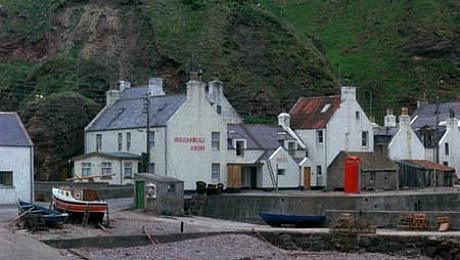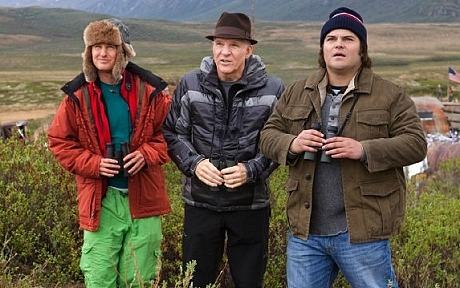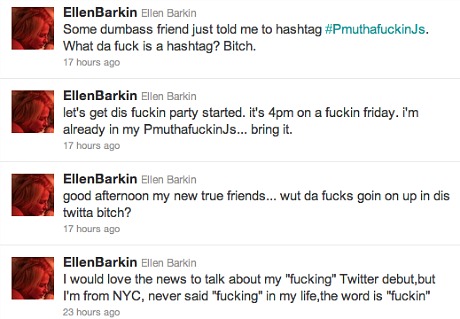Alexander Payne‘s The Descendants won’t open until 11.18, but the word’s been running strong since Telluride/Toronto, and I think it’s time to settle into a chat about Judy Greer‘s brief but poignant performance as Julie, the wife of a Hawaiian realtor (Matthew Lillard) whose slight relationship to George Clooney‘s Matt King hinges on a relationship her husband has had with Clooney’s wife. She’s only in three scenes, but the final one really gets you and delivers — quietly, almost surprisingly — one of the big emotional moments.
And it hits you later on that it’s not the amount of screen time that counts, but what you do with it and how well you score. And it’s not just about craft but what the audience remembers and feels about your character. (Which is what great acting is finally about, I suppose.) Greer’s Julie has a certain warmth and maturity that settles in. Sensitivity, perception, backbone…the qualities of a good woman. And she sells all this in just…what, ten or twelve minutes? Quality, not quantity.
Everyone knows that George Clooney has a Best Actor nomination locked down and that 19 year-old Shailene Woodley will get lots of recognition for delivering a breakout ingenue performance, but I think Greer is a completely credible contender for Best Supporting Actress. Really. She doesn’t deliver a Beatrice Straight-in-Network performance that just rocks the movie in a single blazing scene, and yet she does kind of do that in a softer, kinder, quirkier way.
In a 9.18 N.Y. Times piece about standout character performances, Manohla Dargis and A.O. Scott praised Greer’s Descendants turn. “Best known for kooky-friend roles in romantic comedies, Greer makes a strong, poignant impression in three scenes opposite George Clooney. [She’s] playing a fairly tangential character: the wife of the man Mr. Clooney’s wife had an affair with. But whether clueless, bewildered or tearful, Greer shifts the film’s center of gravity and alters its emotional chemistry.”
Greer is currently in Manhattan with the Descendants gang (Payne, Clooney, Woodley, etc.) for Sunday night’s New York Film Festival screening at Alice Tully Hall. She’ll be making the rounds all through the season, I expect.

Greer in
The Descendants.
Greer and I sat down yesterday at West Hollywood’s Le Pain Quotidien. It was a bit noisy but I recorded about 60% of our chat. I turned it off at one point because I wanted to say something off the record, and then I forgot to turn it on again. Partly, I suppose, because I was having such a nice relaxing time with her. Greer is my idea of a great conversationalist. She knows everything, hears everything, doesn’t put anything on. Her pores are wide open.
Val Kilmer was sitting a couple of tables away with his daughter, and he was nice enough to come over and say hi at one point, and when Judy and I left we were told that he’d picked up our check. Thanks, hombre.
Greer is known as a spunky light comedian, of course, so The Descendants is a big score in that it reminds everyone that she’s got a lot more in her quiver than just pluck and charm and a way with comedy, and it catapults her into that special realm that all contributors to an Oscar-worthy film reside in during Oscar season.
Greer does a lot of television but I don’t watch episodics. Her next significant feature role is in Mark and Jay Duplass‘s Jeff Who Lives at Home, which I missed at Toronto. She projected her usual spritzy, spirited energy in Love and Other Drugs, but that movie was killed by Josh Gad so nobody talks about it.
Greer’s other significant scores have included M. Night Shyamalan‘s The Village (’04), Cameron Crowe‘s Elizabethtown (’05), Thomas McCarthy‘s The Station Agent, and Spike Jonze‘s Adaptation (’02 — i.e., the waitress whom Nic Cage‘s schlumpy screenwriter has a big thing for).







